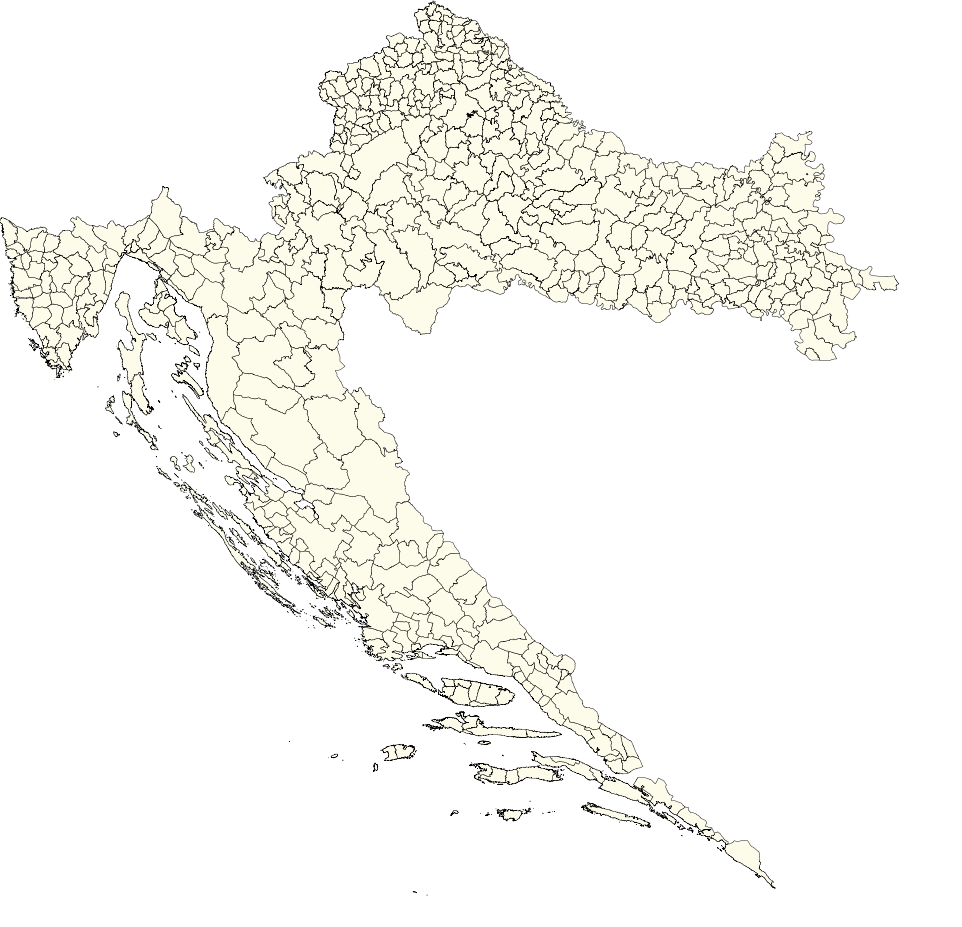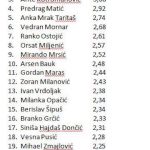April 7, 2020 — Need an “e-pass” to get around Croatia’s local travel restrictions? Find a hungry goat.
The Croatian government acknowledged citizens’ growing frustration over limited movement by loosening requirements for e-passes, the increasingly ubiquitous licenses letting people roam far away from their permanent residence.
Over 500,000 passes have been issued so far, with 16,673 requests rejected and hundreds of thousands of large employers’ applications still being processed. Prime Minister Andrej Plenkovic said limits on travel and daily life will dissolve at a pace deemed fit by epidemiologists. Combined with medical personnel and others, close to a quarter of the nation’s population will soon be free to ignore requirements they stay within their legally declared residence.
Those early restrictions on movements have contributed to Croatia’s curve-flattening. Initially, passes were given for vital trips like a doctor’s appointment. The bureaucratic solution let “stay at home” rules remain in place while also letting residents keep vital obligations. Yet the system failed in several ways, especially for the elderly and those in small municipalities.
The new rules effectively give local governments discretion when doling out passes, but no way to confirm a citizen’s claims. Local officials wonder if the new e-Pass loopholes render past restrictions meaningless.
A Broken Apparatus
Various reports show residents were infuriated by an e-pass system riddled with bureaucratic hurdles and technological goofs.
The office of Ombudswoman Lora Vidović said complaints and questions about the passes range from the bizarre to stupefying. Pensioners living in a bank-less town needing permission to visit their local branch and withdraw funds.
One man complained to the ombudswoman the system denied him an e-pass to see his son, who lives in an adjacent municipality.
Ditto adults with elderly parents, farmers who cannot reach their crops and islanders with off-shore agricultural property they’re unable to irrigate their plants.
The e-pass apparatus also ignores citizens without internet access or signed into the Croatian government’s e-Citizen system, according to Ivan Anušić, head of Osijek-Baranja county. The government believes the system itself may not be at fault.
The Tangled Municipal Web
Croatia’s complicated network of semi-autonomous local governments has gummed up the system with requests.
This nationwide web of municipalities lies at the core of annual calls for reform. These smaller units enjoy their own funnel of public funds and little oversight, often sprouting political patronage jobs for a small circle of insiders (the practice birthed the oft-used term uhljeb).
Yet some municipalities are so miniscule, they lack essential services like medical facilities and pharmacies, or stores, banks and gas stations. This forces some citizens to request e-passes for a quick drive to a nearby to buy groceries or withdraw money at an ATM.
The Civil Protection Directorate yesterday found a novel solution: ignore municipal borders altogether by letting governments combine civil protection units.
Head of the Directorate and Interior Minister Davor Božinović said the Law on the Civil Protection System allows several units of local self-government to form a joint headquarters, a rule which could widen the radius in which residents can travel.
“This will make it easier for someone in a neighboring municipality to go to cultivate their field, or go to the post office,” Božinović said.
Once municipalities reach an agreement, the IT apparatus running the “e-pass” system will reflect the new borders.

A map of Croatia’s municipalities, as of 2020.
The rule comes after Rijeka’s Mayor Vojko Obersnel requested the national government nix e-passes for his city and its eight satellite municipalities. Residents found themselves marooned in the local fragments and seeking passes for banal trips.
Similar measures will take effect in Istria, where an alphabet soup of municipalities from the entire peninsula will merge. Locals will only need e-passes when leaving Istria altogether.
Got chickens?
The list of e-pass-worthy citizens now includes farmers, caretakers and owners of agricultural land. Local leaders worry the reigns came off completely — with claims of neglected crops and suffering livestock skyrocketing.
Some requests e-passes point to hungry chickens, engorged goats or helpless elderly relatives.
“Now, virtually anyone can ask for a pass if they write that they have arable land or some animals,” the head of Zadar’s Civil Protection Directorate Ante Babić told Zadarski List. He said some requests for e-passes included goat-milking and hungry as reasons. In another instance, adults sought an e-pass to care for parents — and their siblings did the same.
The new, relaxed rules combined with a tangled cadastral system leave authorities helpless in checking requests. Flustered officials, Babić said, now give passes based on blind faith and hope the applicant is honest.
“Control is actually impossible and you cannot check whether they really have a house and animals or not […] People abuse this system, and those passes are not only given to those who need it most,” he said.
“Virtually anyone who wants a pass will get it,” said. “People refer to anything and everything. We have cases where someone writes in his request that he has lost his job and cannot buy food, so he asks for a pass to go to the village for the winter. How can we tell if he has a house there and also check he doesn’t have a fever? But his reason is legitimate and we have to give him a pass. So now we are in a situation where practically everyone who requests it gets a pass.”
Babić said the Zadar directorate asked its national counterpart to intervene and clarify, though no changes appear on the horizon. But the head of the national directorate welcomed the changes and said they’d help people in self-isolation.
“The number of issued passes is large,” Božinović said at a press conference yesterday. “But the fact is that we are creating a base, we are working on creating a structure of rejected requests to see how many people among them have a self-isolation order. Those are the offenders, and most importantly, they are potentially dangerous to spread the infection.”









